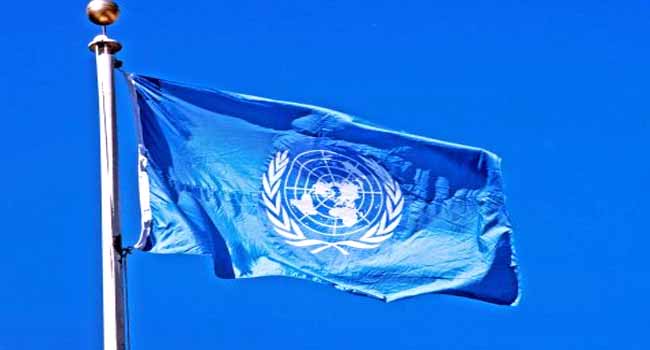UN Targets Electrifying All Of World’s Refugee Camps

The UN set itself a daunting challenge this week aimed at improving the lives of displaced people, reining in climate change and even preventing conflict: to bring electric power to all refugee camps by 2030.
The target is enormously ambitious given that more than 90 percent of refugees living in camps currently have little or no access to electricity, while surrounding communities can also live with overloaded electrical systems and long power outages.
At a global refugee summit in Geneva this week, the UN stressed the urgency of the problem, which can significantly worsen the daily struggles of many displaced people.
Lack of power poses a challenge for cooking, keeping warm or studying, while women and girls especially face far greater safety risks in camps shrouded in darkness.
Electricity is vital, especially for women, Joelle Hangi, a refugee from the Democratic Republic of Congo who has lived in the Kakuma camp in Kenya, told the gathering in Geneva.
“Energy is synonymous with protection, with security. It is this very protection we flee our countries to find,” she said.
Living without power usually means more pollution and greenhouse gas emissions, since people resort to burning firewood or charcoal to meet their household needs, while community facilities use diesel-guzzling generators to keep the lights on.
With many of the nearly 26 million refugees registered worldwide living in camps, the target of providing sustainable and reliable power to all such settlements and surrounding communities within a decade is staggering.
– ‘Ambitious undertaking’ –
“This is a massive and ambitious undertaking,” acknowledged Andrew Harper, who next month will become the UNHCR’s first special advisor on climate action.
“But I don’t think we’ve got any choice given the current situation,” he told reporters on the sidelines of the Global Refugee Forum, pointing to the close interconnection between the climate crisis and surging numbers of displaced people.
A warming planet increases the risk of natural disasters that force people to flee, as well as creating resource shortages that can spark competition, tensions and even conflict — spurring even more displacement.
Already, the areas hardest hit by climate change also tend to host the most refugees, Harper noted.
“We’re seeing fragile countries potentially turning into areas of conflict,” he said, pointing to the Sahel region in Africa, where only 31 percent of the overall population has access to electricity.
Competition for resources like water and electrical power can “lead to additional tensions (and) social stress,” he said, adding: “Unfortunately this is often precursor to conflict,” he said.
The new UN challenge aims to mitigate that risk, and at the close of the summit Wednesday, 24 countries had already stepped forward vowing to do their part to get across the finish line.
A number of projects are already under way to improve the access to green, reliable power in refugee camps, such as installing solar panels at camps in Jordan and distributing clean cooking fuel in Niger.
But in a world where more than 80 percent of refugees are hosted by poor and developing countries, Harper said it was especially important for wealthy countries to step up to the challenge.
“The governments who are hosting refugees understand the issue,” he said.
“It’s the countries who are doing the most in regard to polluting and contributing to global warming who are the ones who are not acting,” he said.
Ugandan Energy Minister Mary Goretti Kimono, whose country hosts 1.3 million refugees, also appealed for more solidarity in addressing the energy needs of the displaced.
“We need your support,” she said at the summit, noting that refugees and local host communities “share resources, which can sometimes be a source of conflict.”
The DR Congo refugee Hangi meanwhile appealed for countries to invest in durable solutions for powering refugee settlements, in a world where conflicts and crises are becoming ever more protracted.
“Refugees’ situation is not temporary. We live in the camps for decades, so we need solutions that last,” she said.





.jpeg)
Comments
Post a Comment